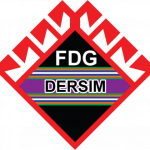Cemal TAŞ *
In the land of peace, freedom and equality in the land where holy visits, the heavens of the earth, the waterfalls, the mountains and the hills are considered sacred… This land was born in the land where bugs, a thousand and one flowers, trees, birds, domestic and wild animals, and peoples were known to be friendly to each other. In the country of Kirmanciye.
Silo Qiz’s grandmother; He is very curious to see if his children are different (the poet who composes the Kilam, the one who sings and the one who recites in the lament). He waited a year for March 21; They are waiting because the locals believe that on this day all the trees will bend their branches to the ground and prostrate themselves on the sacred ground and throw the Scripture on the tree in this narrow time, and the wish of the wish will come true. That day, her grandmother went and threw her bag at the top of the bending tree, asked him for a wish, and said, “My wish is that my children and grandchildren will be different.”
His wish will be granted, and his sons and grandchildren will always be different. They become violin masters, they complain so much that they break people’s hearts. Grandmother’s son Süleyman in the village of Mılu also had a son. They name the born child after his father, and he does it; He is referred to as “Silemano Qız” or Little Solomon. His mother, Saxanıme, was the daughter of Usenê İbrahimi. Ibrahim de Usenê was the son of Ana İsme.
Father Solomon; At a young age, he takes the hand of his son Suleiman and takes him to joint weddings so that he can learn the violin. Silo Qız/Son Süleyman’s hand begins to hold the violin at the age of five. When he turns ten, he loses his father. He follows in his father’s footsteps and so on. And it is that he surprises people with his talent. He celebrates weddings alone with his age as a child.
Over the years, the fame of Sılo Qız has spread and is recognized throughout Dêsım.
Now there is a poet in Dersim, and although his nickname means small, he is a great poet with his honor…
’38 It was his teenage years when his sweat came to the door… A cruel hand leaves no stone unturned in Dersim. Silo Qız survives playing the violin. In his words, the era of Kirmanji is over. Now it’s up to Tertele to burn her lamentations and sing them… The taste of the wedding, the love and the love and the world was overeaten…
Everything that remains of Kirmanciy’s history, language, culture and faith has now been achieved with the language of these poets. Among today’s bards, Sılo Qız is the greatest poet in terms of age and accumulation.
I asked Ap Silemena, what is your advice, advise the Kirmanji youth:
“Whoever you fraternize with,
Whoever you are a companion with
Get to know your friend well.
Divide the bread in half, the large slice for yourself, the small one for you with the giver
Don’t be a brother… Fraternity is equality.
Never think of the evil in this four-day world.”
Ap Sileman;
You have gone to the truth. You have detached yourself from our Qatar, but your voice, your advice, your heritage will never tear you away from the Qatar of the Holy Land. They have left us a treasure that is worth worlds… Thank you to the head of our people.
Let him know that we won’t lose his tracks. I bow respectfully to the moment, Ap Sileman.
Sleep in the light.
*Dersim Oral History Researcher-Author









